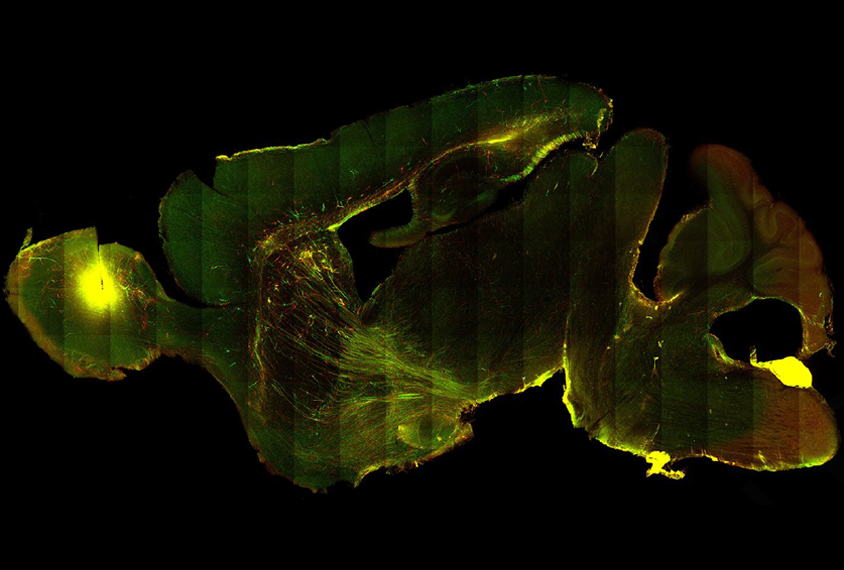Emma Yasinski is a freelance writer covering biology, neuroscience and medicine. Her stories have appeared in The Scientist, Discover Magazine, Smithsonian Magazine, Kaiser Health News and other publications. Yasinski has an M.Sc. in science and medical journalism from Boston University and a B.S. in neuroscience from Lafayette College in Easton, Pennsylvania.

Emma Yasinski
Contributing writer
From this contributor
Parental care may sculpt brain development in prairie voles
Voles reared primarily by their fathers show altered synapse density.

Parental care may sculpt brain development in prairie voles
Social-pragmatic difficulties common with autism, other diagnoses
A standard questionnaire can help identify social (pragmatic) communication disorder more readily in school-age children.

Social-pragmatic difficulties common with autism, other diagnoses
Fragile X neurons develop atypically in chimeric mice
After a brain transplant of reprogrammed human cells, the animals can for the first time recapitulate some neuronal changes seen in people with fragile X syndrome.

Fragile X neurons develop atypically in chimeric mice
Inflexible thinking in adolescence linked to emotional, behavioral issues in adulthood
Treating cognitive inflexibility — for example, by practicing problem-solving — might help ease anxiety and depression in autistic people.

Inflexible thinking in adolescence linked to emotional, behavioral issues in adulthood
Mutations linked to autism may be detectable in men’s sperm
An advanced DNA-sequencing technique has identified gene-damaging mutations, some with ties to autism, in about 1 in 15 men.

Mutations linked to autism may be detectable in men’s sperm
Explore more from The Transmitter
Astrocytes orchestrate oxytocin’s social effects in mice
The cells amplify oxytocin—and may be responsible for sex differences in social behavior, two preprints find.

Astrocytes orchestrate oxytocin’s social effects in mice
The cells amplify oxytocin—and may be responsible for sex differences in social behavior, two preprints find.
Neuro’s ark: Spying on the secret sensory world of ticks
Carola Städele, a self-proclaimed “tick magnet,” studies the arachnids’ sensory neurobiology—in other words, how these tiny parasites zero in on their next meal.

Neuro’s ark: Spying on the secret sensory world of ticks
Carola Städele, a self-proclaimed “tick magnet,” studies the arachnids’ sensory neurobiology—in other words, how these tiny parasites zero in on their next meal.
Autism in old age, and more
Here is a roundup of autism-related news and research spotted around the web for the week of 2 March.

Autism in old age, and more
Here is a roundup of autism-related news and research spotted around the web for the week of 2 March.